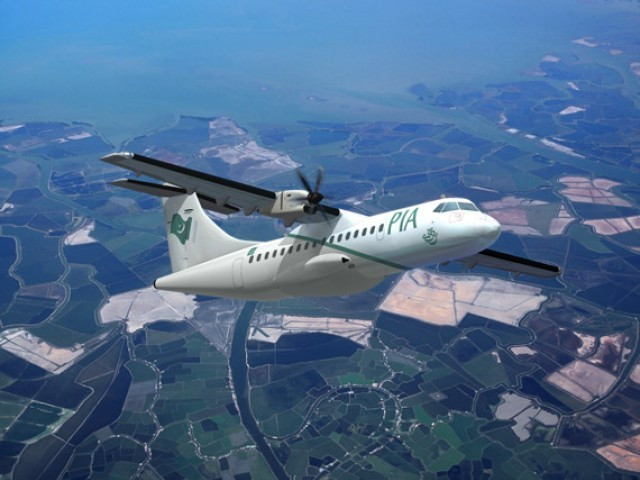There is a visitor’s terrace at Jinnah International airport in Karachi. Its entrance is almost hidden behind the tuck shop off the domestic departures gate. You pay ten rupees to a bored-looking moustachioed man and climb dark, suspicious-looking stairs to reach an equally dark, suspicious-looking security check point. But beyond that point you’re suddenly on the transparent overhead bridge, looking over domestic passengers at the check-in counters and weighing their luggage.
Cross the bridge and you’ll suddenly become aware of the familiar humming of airplanes, so comforting to someone who had to travel very early on in life to visit home in Karachi. It becomes steadily louder and louder, until you realise you’re in a vast empty terrace overlooking green fields (clearly, it had rained) and runways.
There, among forgotten Miranda bottles and Dairy Milk wrappers clinging to the wire mesh separating you from the elements, you can watch domestic and international planes taxi, glide on the runway, and take off. For ten rupees, you can watch people fly.
There are really only two places in Karachi where you can breathe and think properly. One is at the sea, and the other is at the airport’s visitors’ terrace. In fact, if it wasn’t an airport, I’d camp out there all day.
Today was the tail end of the Eid holidays. You could tell because there were families everywhere - waving goodbye at the gates, loitering under the bank-branded canopy, and yes, clans descending upon the visitors terrace. I saw a 20-something man point and explain to an aging crooked woman, her fingers clutching on to the mesh for security. There were children - one boy with his head buried deep in his cell phone game, another girl barely two foot high, with kajol smudged around her small eyes.
You could tell it was Eid, because of how many families had come to say hello - to people returning to work back in the city.
Karachi is a multiethnic, migrant city and you don’t need to read a newspaper headline to know this - just stand at Jinnah International. There are planes arriving from Peshawar and Quetta, planes returning to Sukkur and Turbat. The reunited families hug and kiss under the golden arches in the parking lot.
A friend once told the (true story or urban legend) of the army workers at the Karakorum highway. The men are stationed at such desolate and cut-off parts of Pakistan that even posting letters home is a challenge. So every time a bus passes through the highway, the bus driver slows down, sticks a hand out of the window and grabs the stack of letters thrown at him. Then he posts them at the nearest Pakistan Post Office he finds when he reaches town. It’s that silent agreement between worker and bus driver that makes sure the worker’s family is in touch.
This is the kind of story that comes to mind when you’re out on the terrace, as people ooh and aah at the planes taking off and landing. There’s a reason for the awe - never has it been easier to go home. And that, more than anything, is what makes Eid so special. Eid isn’t about twenty-somethings looking back through rose-tinted glasses on their childhood and complaining that now it’s their turn to give Eidi. It’s not about eating too much kheer, or meeting aunties you don’t want to meet. And it’s not about complaining about firing in the air, or about politics, or cracking ‘Bohat Nazuk Soorat-e-Hal’ jokes. Eid is about going home, as anybody on the flight to Turbat or Lahore can testify. It’s about family, as the people taking last-minute photographs will tell you. Everything about Eid can suddenly be put into perspective from 36,000 feet in the air, as cities shrink to become smaller and smaller through the cabin windows. Or from the terrace, as the plane shrinks, becoming smaller and smaller in the sky. Eid Mubarak, from Jinnah International.



COMMENTS
Comments are moderated and generally will be posted if they are on-topic and not abusive.
For more information, please see our Comments FAQ